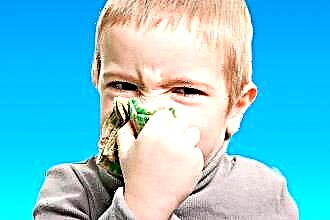Pharyngitis is an unpleasant disease, but in most cases it is not dangerous, especially for an adult. That is why, when symptoms of this disease are detected, most people prefer not to fly to the nearest clinic to see a doctor, but calmly begin to be treated at home. Indeed, home treatment for pharyngitis in adults is usually effective and the person recovers within a week.
 This makes it very convenient that most throat medications are available over the counter without a prescription. However, if you decide to control the treatment process yourself, you should understand that for recovery it is not enough just to buy a few bottles of medicine at the pharmacy and take them - you need to create conditions at home that would facilitate the healing process. For example, you should adjust the temperature and humidity in the apartment, as well as the daily routine, diet.
This makes it very convenient that most throat medications are available over the counter without a prescription. However, if you decide to control the treatment process yourself, you should understand that for recovery it is not enough just to buy a few bottles of medicine at the pharmacy and take them - you need to create conditions at home that would facilitate the healing process. For example, you should adjust the temperature and humidity in the apartment, as well as the daily routine, diet.
In this article, we will tell you all about how to treat pharyngitis at home in adults using traditional methods and pharmaceutical drugs.
To treat a disease, you need to understand at least in general terms what it is. Pharyngitis is an inflammation of the lining of the throat. As you know, inflammation is an immune response, which can be provoked by viruses, bacteria, fungi and other infectious agents, as well as chemical irritants, allergens, etc. Accordingly, pharyngitis can have infectious and non-infectious causes.
In the vast majority of cases, the cause of pharyngitis in adults and children is viruses, namely, the same ARVI (acute respiratory viral infections). The peak incidence of ARVI corresponds to the autumn-winter period, since with hypothermia, the human body is less resistant to the introduction of viruses.
In second place among the causative agents of the disease are streptococcus, staphylococcus and other bacteria. Bacterial pharyngitis is more severe and requires more serious treatment. In particular, therapy is not complete without prescribing antibiotics.
Pharyngitis of a viral nature lasts no more than 7 days, while a bacterial infection can develop much longer, and even flow into a chronic form.
Symptoms
There are many throat illnesses, and often people do not distinguish them, confusing sore throat, pharyngitis, laryngitis, etc. Indeed, these diseases have some common symptoms, for example, sore throat, redness of the mucous membranes, etc. Let's highlight the symptoms of pharyngitis, which make it possible to clearly distinguish it from any other throat diseases:
- sore throat, especially in the early days of illness (it is also described as a scratching sensation, tingling, etc.);
- redness of the throat (primarily the visible part of the pharynx, as well as the palate);
- a mucopurulent or yellowish bloom may be noticeable on the pharynx;
- the tonsils remain normal - they do not increase, they do not turn red, there is no plaque on them;
- worried about a sore throat (it can be strong, but still not as acute as with sore throat), the pain can be given to the ears;
- feeling of a lump in the throat;
- accumulation of mucus in the pharynx can cause a cough, which usually occurs in the morning or when lying down;
- an increase in body temperature (with ARVI not higher than 38C, in adults it can remain normal; if the temperature exceeds 38C, it is worth suspecting the presence of a bacterial infection);
- weakness, fatigue, apathy;
- often the patient has a runny nose, sneezing and other symptoms of a cold in parallel.

As soon as you find the first symptoms, proceed with treatment. Don't wait for the pain to show in full force. Treatment started in the early days of the illness is most effective.
Pharyngitis treatment
How to cure pharyngitis? It all depends on the type of illness.
So, if inflammation of the pharynx is associated with ARVI, home symptomatic treatment will suffice, but if the disease is of a bacterial nature, only antibiotics can guarantee recovery.
Why? The fact is that antiseptics, gargles, etc. unable to destroy bacterial cells. The disease may subside, the symptoms will subside, and the infection will not go away. This is how chronic pharyngitis develops. This condition is very dangerous - not only will pharyngitis worsen after each hypothermia, but also the whole body suffers from constant intoxication with the products of the vital activity of bacteria. It is known, for example, about the complications of streptococcal infection in the heart, kidneys and joints.
Treatment of bacterial pharyngitis should be under the supervision of a specialist. The attending physician will select the antibiotic required for your case. Usually, for pharyngitis, penicillin drugs are prescribed (Amoxiclav, Amoxicillin, Phenoxymethylpenicillin, etc.) or macrolides (Azithromycin, Roxithromycin, Clarithromycin). The choice of antibiotic depends on the activity of the infection, the type of pathogen, and also on what antibiotics the patient has taken earlier.
With viral pharyngitis, antibiotics are not needed - you do not need to take them "just in case" and "for prevention."
Viral infections are transient, and after 3-4 days the patient will feel much better. The primary tasks of treating viral pharyngitis are to relieve the state of health in the acute period of the disease, and to prevent the development of secondary infections. The treatment is based on a variety of antiseptics:
- Rinsing solutions - decoctions of medicinal plants, as well as special preparations, for example, "Dolphin". Rinsing can be carried out several times a day, after meals and before going to bed - a must.
- Lozenges and lozenges. Many are skeptical about this type of treatment, but in vain. Lozenges can be a powerful adjunctive treatment for both viral and bacterial throat infections. Lozenges and tablets may contain an antiseptic, analgesic, antifungal agent, immunostimulating agents, as well as various plant extracts, honey, and the like. Popular drugs in this category are Strepsilg, Faringosept, Lizobakt, Septolete, etc.
- Throat sprays contain higher doses of antiseptic than lozenges and gargles. They irrigate the throat, after which they refrain from eating, drinking and talking for half an hour. Ingalipt, Geksoral, Oralsept, Proposol, Cameton, Lugol-spray, Stopangin - this is not a complete list of modern sprays for a sore throat.
Treatment must necessarily be complemented by adjusting nutrition and drinking, the microclimate of the patient's room, etc., which we will discuss in more detail later.
Treatment with folk methods
 Treatment of pharyngitis at home is not complete without traditional medicine methods. They can reduce unpleasant symptoms such as sore throat and mucus buildup. In addition, many traditional methods are aimed at strengthening the body, stimulating the immune system and detoxifying.
Treatment of pharyngitis at home is not complete without traditional medicine methods. They can reduce unpleasant symptoms such as sore throat and mucus buildup. In addition, many traditional methods are aimed at strengthening the body, stimulating the immune system and detoxifying.
The simplest method of traditional medicine, which is approved by all doctors, is gargling with water and salt or soda.
This procedure mechanically clears plaque from the throat, loosens mucus, facilitating its discharge. If you add herbal ingredients to the water, the solution will acquire antiseptic properties. For example, rinsing with solutions prepared according to the following recipes give a good effect:
- Pour a tablespoon of dry chamomile flowers with boiling water, continue to boil over low heat for 15 minutes. Cool, bring the volume to the original by adding chilled boiled water. Strain and rinse.
- A decoction of eucalyptus leaves is prepared in a similar way.
- Boil a piece of propolis in water for 20 minutes, use the resulting broth for rinsing. You can also use propolis tincture (add a teaspoon of the tincture to a glass of warm water.
- Pour boiling water over a spoonful of chopped pine buds, cover with a lid and leave for 2-3 hours. The infusion is ready.
Another wonderful folk remedy in the fight against pharyngitis is inhalation. With pharyngitis, it is heat-steam inhalations that are effective (which are carried out not with a nebulizer, but with a conventional steam inhaler). The optimum temperature of the liquid in the inhaler for adults is about 60C. As a solution for inhalation, you can use mineral water, a decoction of chamomile, eucalyptus leaves, water with the addition of propolis or chlorophyllipt tincture, as well as essential oils of tea tree, eucalyptus, sage.
Inhalation is contraindicated at high body temperature.
How to speed up your recovery?
In order for the treatment to lead to an improvement in well-being as soon as possible, it is necessary to create conditions conducive to recovery. It is necessary to ensure the supply of vitamins, nutrients to the body, take care of rest, etc. In such conditions, the body will be able to channel the available energy to fight infection, and recovery will come soon.
Pay attention to the following guidelines:
- Adjust nutrition during treatment. Food should be rich in vitamins, high in calories, but easily digestible. Give preference to soft, mild foods at a comfortable temperature. Croutons, mushrooms, hot spices, cold desserts should be banned for several days.
- Compliance with the water regime is no less important than diet. Drinking plenty of fluids helps the body get rid of harmful substances that form in the blood during a viral infection. In addition, drinking a lot of fluids thins the blood, and at the same time, prevents the phlegm from thickening and drying up in the throat. Thanks to this, mucus does not accumulate in the pharynx, which can become a breeding ground for bacteria.
- Air humidification, like the water regime, has a beneficial effect on the condition of the inflamed pharyngeal mucosa. The generally accepted norm for air humidity in an apartment is 45-70%. In this case, the air temperature should not exceed 22 degrees.
- By giving up bad habits such as smoking and drinking alcohol, you will relieve the burden on the respiratory tract and liver, which already suffer during ARVI.
- A patient with a high body temperature must comply with bed rest - the body needs rest and energy.
Practice shows that in cases where the patient is really engaged in treatment and gives the body full rest while fighting the virus, recovery occurs within a few days.
If you endure pharyngitis "on your feet", the treatment can take many weeks.



